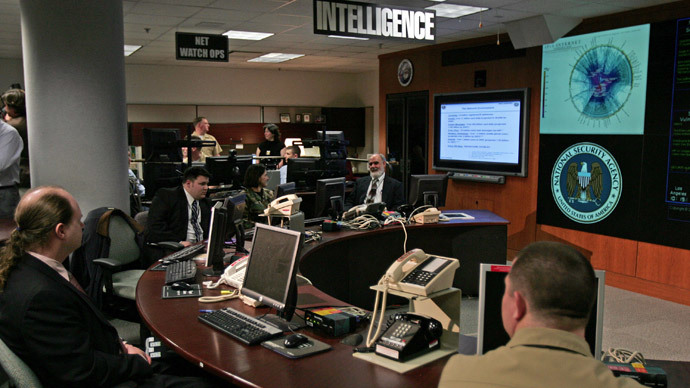US law firm representing Indonesian government caught in NSA spying web

With help from the Australians, the NSA has been gathering private communications of US lawyers with their clients in the Indonesian government involved in a trade dispute with Washington, a secret document obtained by the New York Times reveals.
The document provided by the former NSA contractor Edward Snowden
exposes NSA activity in monitoring an American law firm at a time
when it was representing the Indonesian government during its
trade talks with counterparts from the US.
Titled “SUSLOC (Special US Liaison Office Canberra) Facilitates
Sensitive DSD Reporting on Trade Talks” the document did not
specify which trade case was being monitored by Australian
intelligence through the so-called Five Eyes network that
includes, Australia, Britain, Canada and New Zealand.
The Australian Signals Directorate (ASD) offered to share with
the NSA the information about monitored communications between
Indonesian government officials and the unnamed US law firm,
according to the February 2013 document.
The intelligence report Australia offered to share could contain
“information covered by attorney-client privilege,” the
spying agency warned the NSA liaison office in Canberra. Upon
receiving guidelines from NSA general counsel’s office, the
Australian agency has been encouraged to continue their
surveillance of the talks “providing highly useful
intelligence for interested US customers.”
It remains unclear who those “interested customers”
might be.

At that time the Indonesian government was involved in a number
of trade disputes with Washington and the New York times reports
that the only US law firm involved was Chicago-based Mayer Brown.
“I always wonder if someone is listening, because you would
have to be an idiot not to wonder in this day and age,”
Duane Layton, a Mayer Brown lawyer involved in the trade talks
told NYT “But I’ve never really thought I was being spied
on.”
US intelligence officials have repeatedly claimed the NSA is not
targeting American citizens and businesses without a warrant and
not using its Five Eyes international network as a loophole.
But the new leak confirms that US firms providing services to
foreign clients can never be sure they aren’t being spied on.
Last year, the US States Supreme court dismissed such fears as
“speculative theory” of “hypothetical future
harm,” refusing to let Americans challenge a provision in a
foreign intelligence law that lets the NSA conduct secret
warrantless surveillance on any US citizen as
long as they are suspected of conversing with any foreigner.
According to 2009 procedural guidelines for the NSA, when a US
citizen becomes an intelligence target, the agency is required to
adhere to rules to protect the target’s privacy, for instance
removing the identity of the American or data that does not add
to the intelligence probe before sharing it with other agencies.
Australians have been long cooperating with the NSA, focusing on the Asia
region, mainly China and Indonesia. Last November is was revealed
that they worked side by side on a large-scale joint surveillance
operation on Indonesia during the 2007 UN climate change
conference in Bali.
The new documents reveal that Australia obtained almost 2 million
encrypted master keys from the Indinesian Telkomsel mobile
network, and colleagues from NSA have been helping ASD decrypt
them.
The Australian Defense Force public affairs office maintains that
all intelligence is collected under strict legal guidelines and
is vital for supporting national interests, echoing the US
officials’ narrative. Meanwhile, the NSA when reached by the New
York times about the new leaks “declined to answer
questions.”














